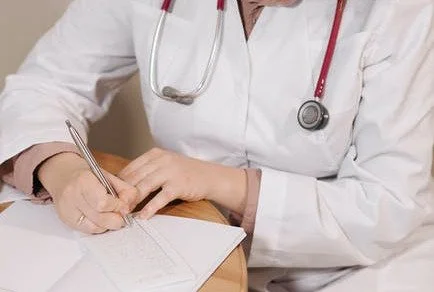Addiction doesn't single out a specific group or type of person. Anyone can become addicted to alcohol or drugs. While some become addicted through recreational or experimental use, others may become dependent on prescriptions. Whatever you find you are addicted to, you can stop using through a medical detoxification (detox) program.
How Do I Know if I Have an Addiction?
Addiction to a substance doesn't happen overnight. As you increase your frequency or amount of use, your body and brain gradually adapt to the substance. Alcohol and drugs affect crucial parts of your brain, including the section that responds to feelings of pleasure. Instead of relying on naturally produced hormones, the brain uses substances to create feelings of pleasure. Over time, the brain requires more to feel like the first time you used. Symptoms of addiction include:
Intense craving or urge to use a substance.
Keeping a steady supply of the substance.
Failure to fulfill personal or work responsibilities.
Stealing.
Lying to friends or family about your use.
Engaging in risky behaviors like unprotected sex or driving under the influence.
Any of these symptoms are signs you should consider entering a medical detox program.
Why Shouldn't I Quit on My Own?
Whatever your reason for quitting alcohol or drugs is, check into a medical detox center before you stop. The urge to go it alone is dangerous and unnecessary. Professionals trained to supervise the detox process while caring for your needs will make sure you're safe and comfortable.
During the detox phase of your substance addiction treatment, you can experience physical or emotional symptoms. For example, some physical symptoms are insomnia or restlessness. Your emotions can include depression, anxiety, or other mental health issues. Physical or mental health issues occur because your body adapts to a substance over time. When you decide to detox, you take away the substance creating a gap. The removal of the substance can increase cravings to lessen the physical or mental feelings of withdrawal. When your body is adapting to the loss of alcohol or drugs, the potential for harmful side effects increases.
What Are the Side Effects of Alcohol Withdrawal?
Alcohol acts as a depressant, slowing your brain. If you drink for a long time or heavily, your brain tries to eliminate the depressant effects by overproducing stimulating chemicals. Your brain created a new normal. When you decide to quit drinking, your brain continues to produce the chemicals that stimulate it. The withdrawal of alcohol combined with the overproduction of the chemicals can cause several side effects. Some of the psychological effects are:
Nightmares
Depression
Inability to think clearly
Irritability
Shakiness
A few of the physical symptoms are:
High blood pressure
Headache
Decreased appetite
Nausea or vomiting
Increased heart rate
You may also experience a dangerous form of withdrawal called Delerium Tremens (DTs). DT increases your risk of death. A few symptoms of DT are:
Agitation
Hallucinations
Fever
Seizures
Unstable changes in blood pressure
Severe confusion
A medical detoxification program will provide the supervision necessary to either prevent or decrease your risk of DT. The risk of death increases without the proper treatment of DT.
The Side Effects of Opioid Withdrawal
Opioids connect themselves to the opioid receptors found in your brain, gastrointestinal tract, and spinal cord. The brain does produce opioids that decrease pain, respiratory rate, and the risk of depression or anxiety. Prescription painkillers provide the extra help your body needs to reduce pain. For example, your body doesn't produce enough opioids to help decrease the pain from a broken limb or a disease like cancer.
Opioids, prescription painkillers, heroin, or fentanyl are potent. Prescription painkillers classified as opioids have a considerable risk of abuse, addiction, or unintentional overdose. When you decide you are ready to stop using opioids, be aware that your withdrawal symptoms depend on the length of time, the amount you used, and which type of opioid you are using. Opioid withdrawal symptoms include:
Watery eyes, yawning, or a runny nose
Anxiety
Irritability
Mood disturbances
Pain
Digestive tract issues like nausea, vomiting, diarrhea, or stomach cramps
Unstable blood pressure
Suicidal thoughts
What Can I Expect in Detox?
Detoxing is a scary thing to go through. To help you feel more comfortable before entering a program, you should know a few things about a medical detox program. When you enter a detox program, a doctor will assess your needs. That doctor will be available 24/7 in case you experience complications. Medical detox programs also have nurses on staff. Their job is to monitor your progress, give you medications prescribed by the doctor, and explain what to expect while you're withdrawing from alcohol or drugs. Your well-being is their goal.
Substance addiction overtakes and controls your life, regardless of your age, race, financial status, or gender. When you decide to stop drinking or using a drug, it's vital to seek help from those who trained to guide you safely through the withdrawal process. Maybe you think you don't need to go to a medical detox center because you can detox independently. However, given the many side effects of substance withdrawal, you should rethink your decision; everyone experiences withdrawal from alcohol or drugs differently. Maybe you won't have severe side effects, but the potential for dangerous or deadly results exists. A medical detox center, like Monte Cristo Recovery, has a medical staff that specializes in substance withdrawal. We understand that as substances leave your body, you require a safe, comfortable setting. Our center provides chef-prepared meals, full-size beds, and other amenities. You deserve the space to reflect, assess, and heal. To learn more, call (714) 824-9896.

